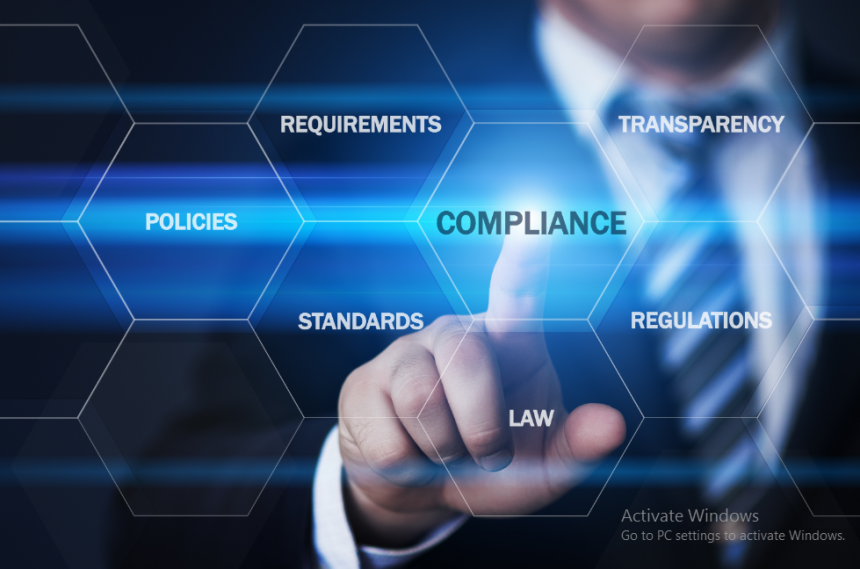Email is one of the most popular communication tools businesses use to stay in touch with their customers. But like everything else in life, there are rules that need to be followed in order to keep your emails legitimate and compliant. In this blog post, we will provide a brief introduction to email compliance and explain the steps you need to take in order to make sure that your emails are both effective and legal. From sending emails to tracking clicks, read on to learn more about how email compliance can help boost your marketing efforts.
What is Email Compliance?
Email compliance has become an important part of online marketing for both small and large businesses. Not only is it important to comply with regulations such as the CAN-SPAM Act, but email marketing can also be a very effective way to connect with customers and build relationships. Here are some tips on how to effectively manage your emails:
- Make sure all your email addresses are correct.
- Use approved templates and senders.
- Ensure messages are properly formatted and legible.
- Use tracking codes to measure your email’s performance.
Email Compliance: A Brief Intro
Email compliance is the act of ensuring that an email message adheres to specific regulations or best practices. Regulations can vary from organization to organization, so it is important to get familiar with the specific requirements for your company or industry. Email Compliance refers to the whole process of keeping an email message compliant with all applicable laws, rules, and regulations, not just the sending side. This means that both the sender (generally) and recipients (usually) need to comply with all applicable laws, rules, and regulations that may apply before an email message can be sent.
The Basics of Email Compliance
There are many types of email compliance and managing them can be complex. In this article, we will give you a brief introduction to the basics of email compliance and how to effectively manage your emails.

There are a few different things you need to do in order to ensure effective email compliance:
- Verify The Legality Of Your Message: Before you send an email, always make sure that it is legal for you to do so. There are many laws that regulate how information is shared through electronic communication, so make sure that your message adheres to all applicable regulations. If you are not sure whether or not your message is legal, consult with a lawyer or other professional who can help you verify its legality.
- Check Your Message For Spammers And Viruses: Always check your messages for spam and viruses before sending them out. Spammers and viruses attempt to spread.
The Different Types of Email Compliance
Email compliance is important for a variety of reasons. For starters, email can be used as a tool to gather information and engage with customers. If your emails are not compliant, it could lead to customer dissatisfaction and loss of business. Here are three different types of email compliance…
- Marketing Emails: Most marketing emails should be compliant with both the CAN-SPAM Act and the AORTA guidelines. Both laws require that you include certain information in your email, such as your contact information and a contact form. You also need to make sure that your email doesn’t contain any misleading or deceptive content.
- Customer Service Emails: Other customer service emails should comply with the Federal Trade Commission’s (FTC) Phone Scam Guidelines. These guidelines require that you provide accurate contact information, disclose that you are soliciting money, and provide a way for customers to unsubscribe from future solicitations.
- Address Book Emails: In addition to complying with the CAN-SPAM Act and the FTC Phone Scam Guidelines, address book emails should also comply with the GDPR regulations. The GDPR requires that you get consent from recipients before collecting their personal data, including their addresses. Be sure to clearly state how you will use this data in your address book emails so recipients know what they’re agreeing to.
How to Set Up Email Compliance Rules?
Email compliance is an essential part of any organization’s email management strategy. By following a few simple guidelines, you can ensure that your emails are delivered in a timely and appropriate manner and that your recipients understand the expectations you have for them with regard to email communication.
When setting up email compliance rules, it is important to keep in mind the various channels through which your employees may be sending and receiving emails. Emails sent through corporate mail systems must adhere to specific regulations, such as properly formatted and containing accurate contact information. Additionally, emails sent over the internet must be secure and conform to certain specifications, such as not including personal information or links to malicious content.
To ensure that all of your emails are compliant with applicable regulations and standards, you will need to establish a set of rules governing how they are sent and received. This can be done in a number of ways:
- Develop specific policy statements regarding email communication protocols and etiquette. These statements should cover topics such as acceptable formatting practices, permissible contact addresses, mailing list usage requirements, etc. Ensure that all employees are aware of these policies and follow them when sending or receiving emails.
- Use automated tools to enforce your email compliance rules. An effective enforcement mechanism allows you to automatically scan incoming messages for violations of policy, notify offenders via email message or pop-up window, and take appropriate action (e.g., issuing warnings or suspensions).
How To Effectively Manage Your Emails?
Email compliance is a critical part of any organization’s email management system. Ensuring that all emails are compliant with various regulations can help protect your company from potential legal action. Here are some tips on how to effectively manage your emails:
- Keep a Clean Email Environment: Keeping your email environment clean is essential for compliance. This means avoiding sending out emails that could be considered offensive or illegal. Make sure all emails sent out by your company is properly formatted and conform to applicable regulations.
- Use Email Compliance Tools: There are a number of email compliance tools available on the market today. These tools can help you identify and correct any potential violations in your emails. use these tools to ensure that all of your emails are compliant with applicable regulations.
- Use Automated Email Compliance Monitoring Systems: If you don’t have the time or resources to manually check each and every email, consider using automated email compliance monitoring systems. These systems will automatically scan through each incoming message and flag any potential violations.
Conclusion
Email compliance is something that every business should be aware of. You never know when you might receive a legal or regulatory inquiry, and having clear and up-to-date email policies can help ensure that your company responds in a timely and compliant manner. In this article, we will go over some key tips for effectively managing your emails so that you can avoid any issues down the road.








